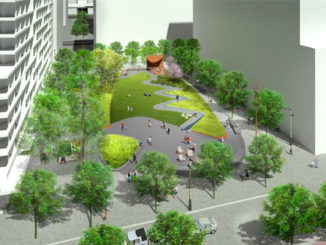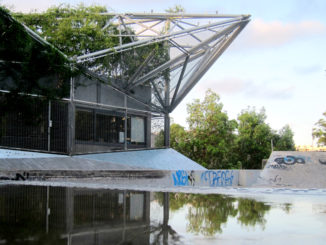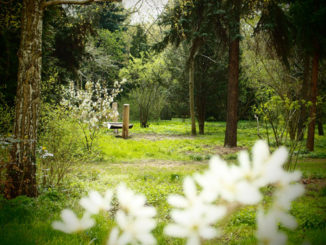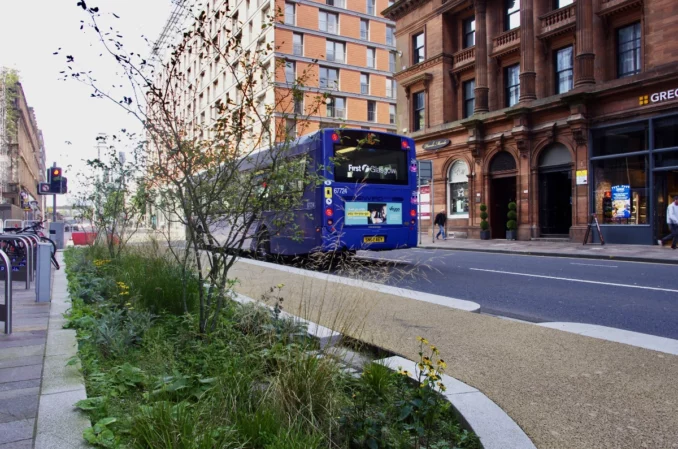
The Argyle Street rain gardens are part of Glasgow City Council’s ambitious city-wide Avenues project is now complete and operational, delivered early as part of JP Morgan Chase’s new corporate headquarters building.
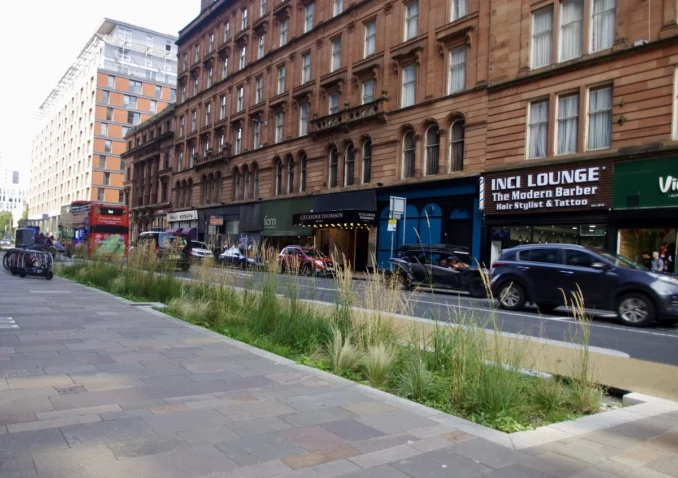
The rain gardens collect run-off from all the hard paved surfaces to `water’ the wide variety of grasses, herbaceous plants and specimen shrubs that have been planted. Most of the water will be used by the plants (approximately 75%), which will relieve pressure on Glasgow’s combined sewer system, helping to reduce water-polluting storm events and provide capacity in the sewer – enabling new developments in the International Financial District to come forward. The plants will also help to improve the air quality on the street through the process of photosynthesis and will act as a filter to airborne particulate matter.
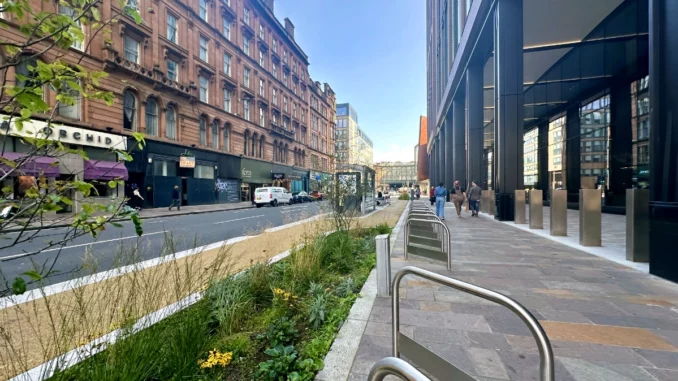
The Argyle Street rain gardens form part of a streetscape that includes a segregated cycle track, a new bus stop with a shelter and seats, a wide clutter-free footway paved in Italian Porphyry, and several bike stands. Water flows under the cycle track in specially designed rills to avoid flooding the railway tunnels beneath the road.
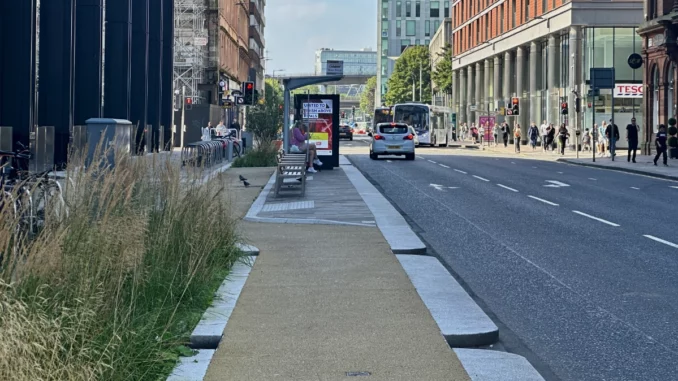
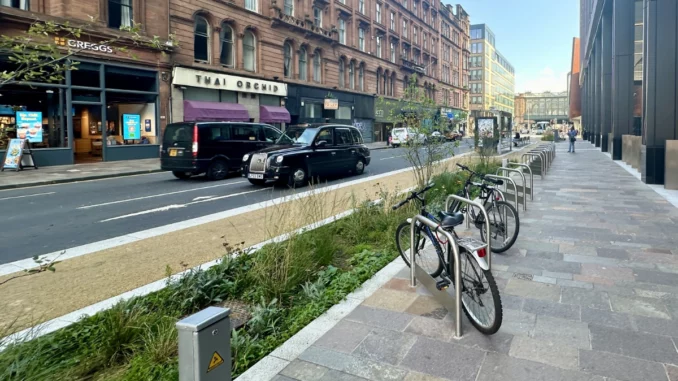
Glasgow City Council has also just started work on the first phases of the Argyle Street West Avenue at Anderson Cross, which was also designed by Urban Movement and Civic Engineers, the same team that delivered the Avenues pilot project on Sauchiehall Street that opened in 2019. This will tie into the early phase JP Morgan Chase block and will eventually tie into a similar project on the High Street at the Trongate, creating a mile of new urban streetscape. Construction of the third Avenue by Urban Movement and Civic Engineers has started on Cambridge Street, with the North Hanover Street Avenue due to start next year.
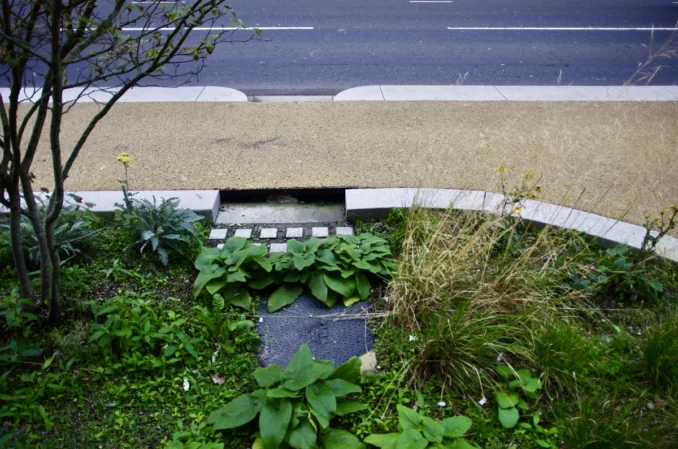
Argyle Street Rain Gardens
Location: Glasgow, Scotland
Designer: Urban Movement
Images Credit: © Urban Movement

